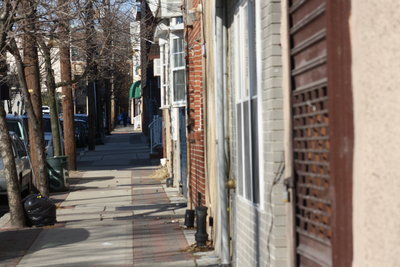Nearly every day when Carey [not her real name] walks her daughter to the bus for school, she passes a small house in downtown Bayonne she would love to live in.
“It’s a cute little place that would make a fine home,” she said recently. “Nobody lives in it. We would love to live there. You would think that someone would want to rent it out for cheap. Wouldn’t it be better to have someone living in it than to have it sit there like that?”
Late last year, Carey and her daughter found themselves homeless due to her loss of job and mounting back rent, and though they have relocated to the basement of her father’s house, she said it hardly feels like home, as they have to ask permission to use the kitchen and need to go to another family member’s house to shower. The idea of hundreds of houses unoccupied county-wide puzzles her, especially when she sees this one everyday almost begging for someone to live in it.
Bayonne Council President Terrence Ruane said homes like these fall between the cracks. Foreclosed homes are often caught in a legal limbo, usually owned by banks that cannot or will not rent them out.
“It’s a shame really,” Ruane said. “Nobody is using these houses.”
In some ways, it’s even more of a shame because these houses are often neglected and, over time, deteriorate into conditions that make them impossible to rent or sell.
Freeholder Jeff Dublin said this is a serious problem in poorer sections of Jersey City where large banks have fled, leaving economic ruin in their wake. Keeping up foreclosed houses is both expensive and unprofitable, and because these banks are not investing in these neighborhoods, properties slowly fall to pieces.
“It’s a shame really. Nobody is using these houses.” – Terrence Ruane
____________
Housing, banking reform needed
While Bayonne has been cracking down on these properties – collecting more than $200,000 in fines over the last year for unmaintained property – Ruane said these houses could go a long way toward providing the city with affordable housing if they could be sold or rented.
Ruane said this could also discourage the market for illegal apartment dwellings, which the city has been trying to shut down since a fire three years ago near Avenue A killed a resident there. Bayonne has been using a combination of police, fire inspectors, building inspectors, and zone managers to deal with both maintenance and illegal apartments.
To help deal with the problem of foreclosed housing and lack of investment in poorer neighbors in Hudson County, Freeholder Bill O’Dea asked at the Jan. 3 freeholders’ meeting that the freeholder Banking Committee review all the banks the county puts its tax and other revenues in to make certain that they are helping local communities.
“Major banks have pulled out of the poorest neighborhoods in Jersey City,” O’Dea said. “We need to reconvene the banking committee from two years ago to review of all the banks and their performances and stay on top of that.”
He said some of the banks that the county proposes to use as repository for county funds currently do little or no business in those areas.
“Also, we need make sure some of the commitments banks that made to county to programs are living up to them,” he said. “Some banks didn’t fully comply; we want to make sure they do so now.”
Dublin said Ward F in Jersey City lost two major banks, which ceased doing business in a largely African-American community
“There are no real banks in the Ward F community, and we need to sit down and get a bank to come back into that area,” he said. “We have a lot of businesses and home owners in those communities.”
One of the banks the county proposes to serve as repository of payroll account has pulled out of the poorer sections of Jersey City, O’Dea said, and suggested the county use this account to lure another bank into the poorer sections of the city.
“There have been discussions with Jersey City to bring a bank into that part of the city, a bank currently not listed as a repository for county funds,” O’Dea said. “We need to be involved in these discussions.”
He said county and city money deposited in a bank would make it economically feasible for the bank to do business in the poorer sections of the city.
For Carey, who wants to be able to cook meals for her daughter in a kitchen of her own, to take showers in a bathroom of her own, and sleep in a bedroom of her own – possibly doing so in the little house she passes every day – she needs the government to negotiate with banks. The banks need to be made to feel more accountable to local communities, which could be the answer to Carey’s problems. It would make her feel like she isn’t imposing on anyone and will give her and thousands like her an opportunity to get back on her financial feet.
“No one is using these houses,” she said. “They are just going to waste.”
